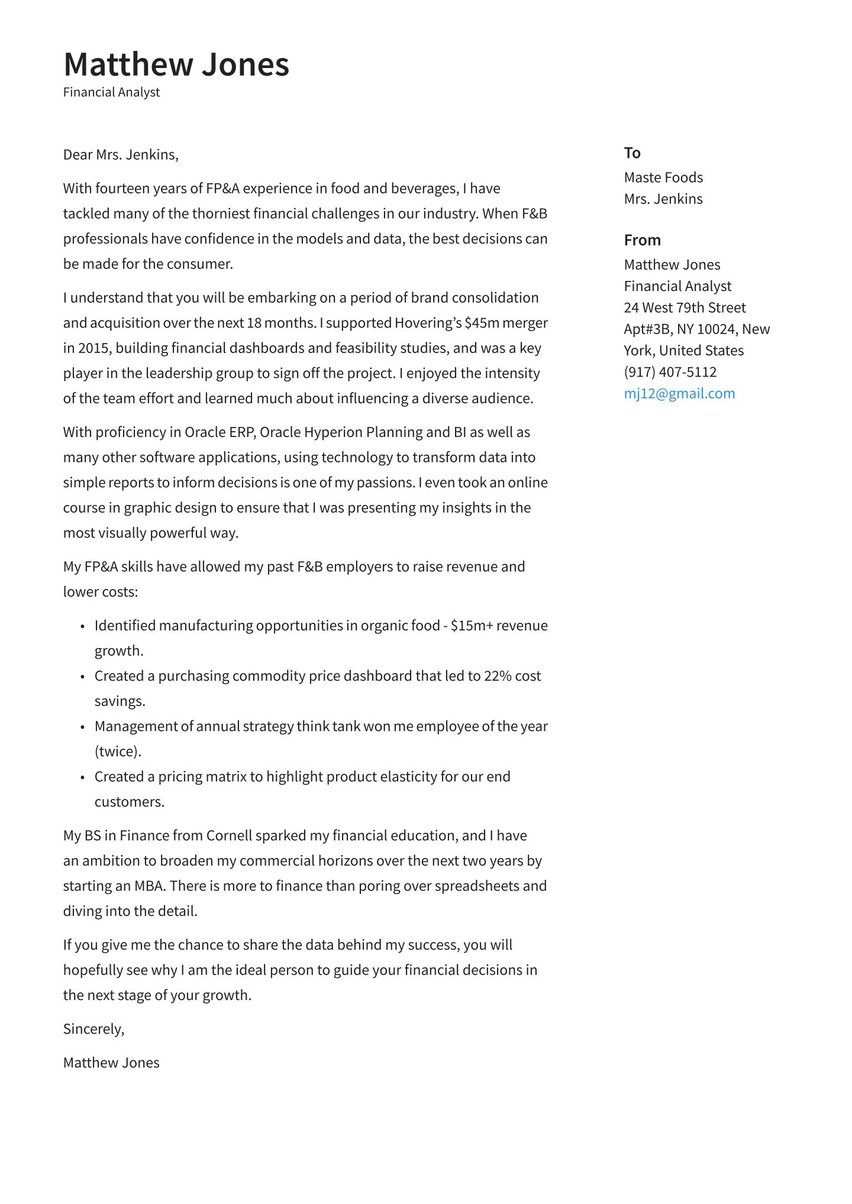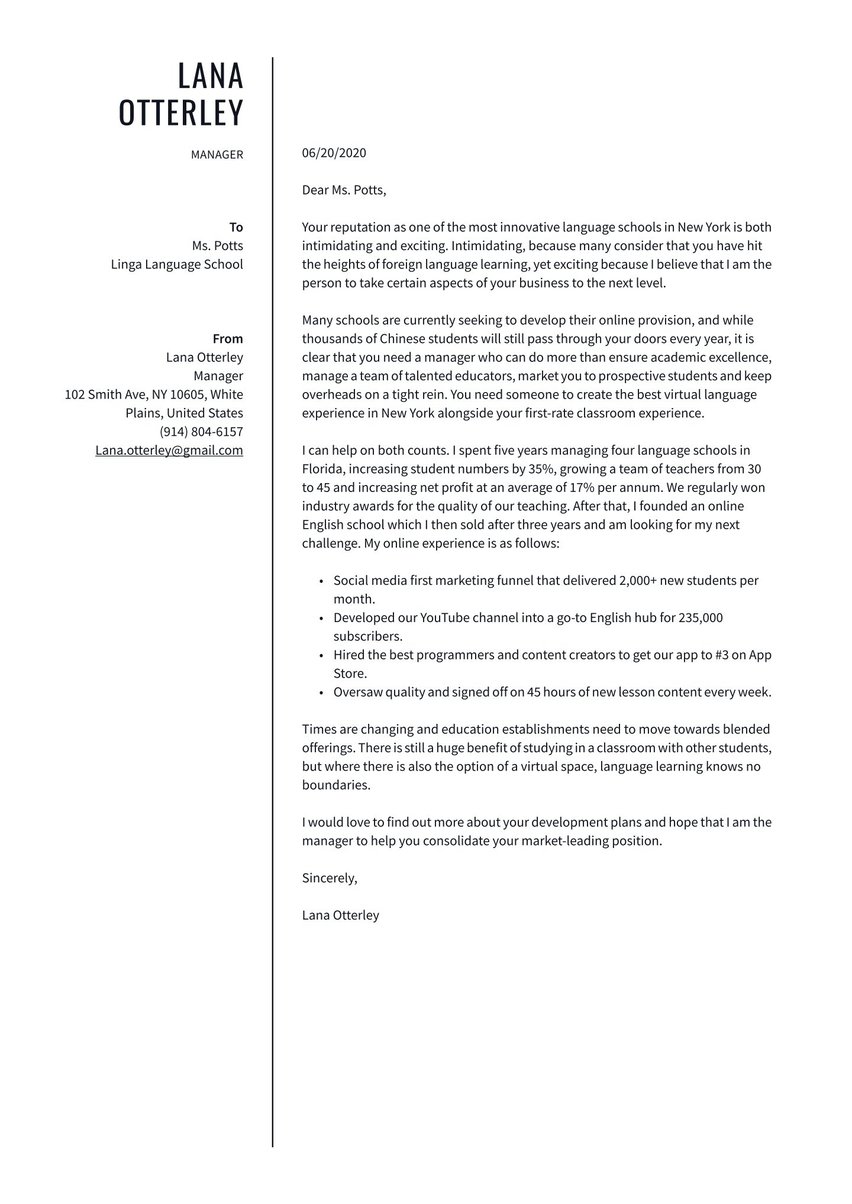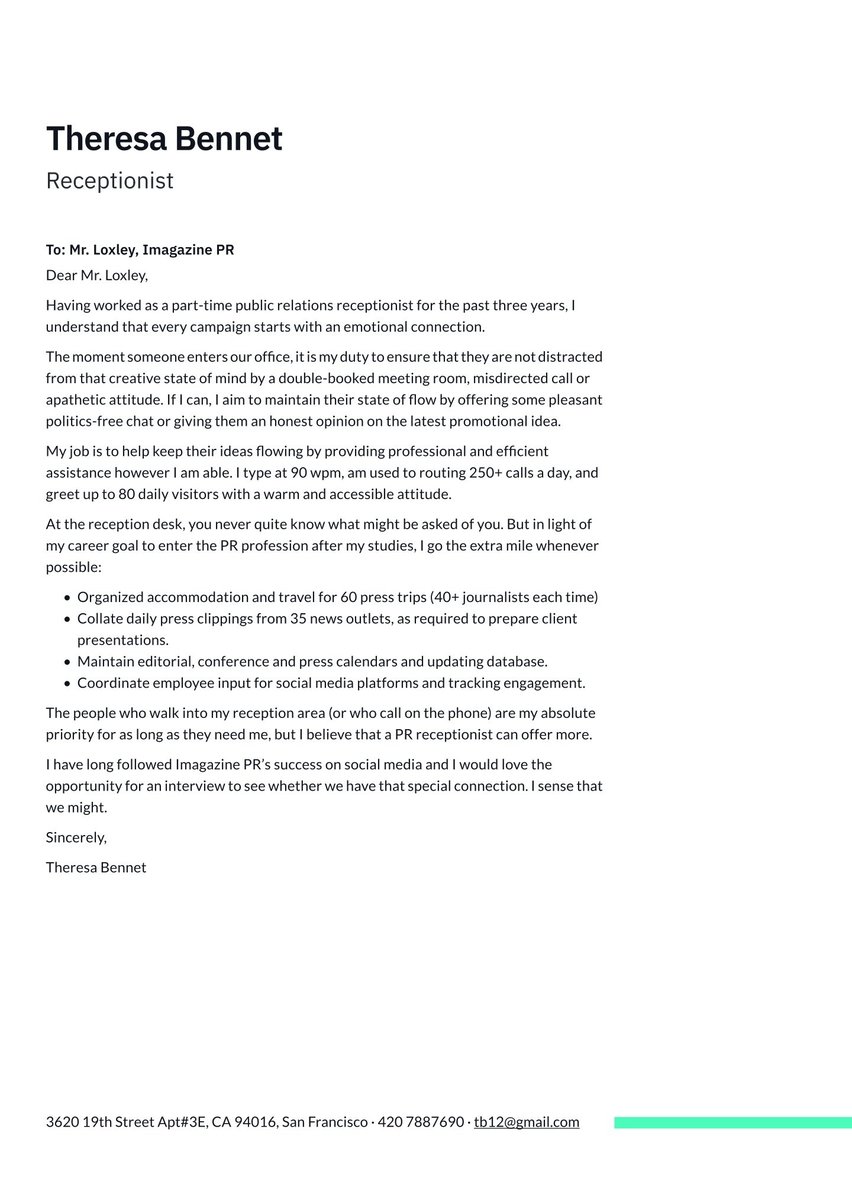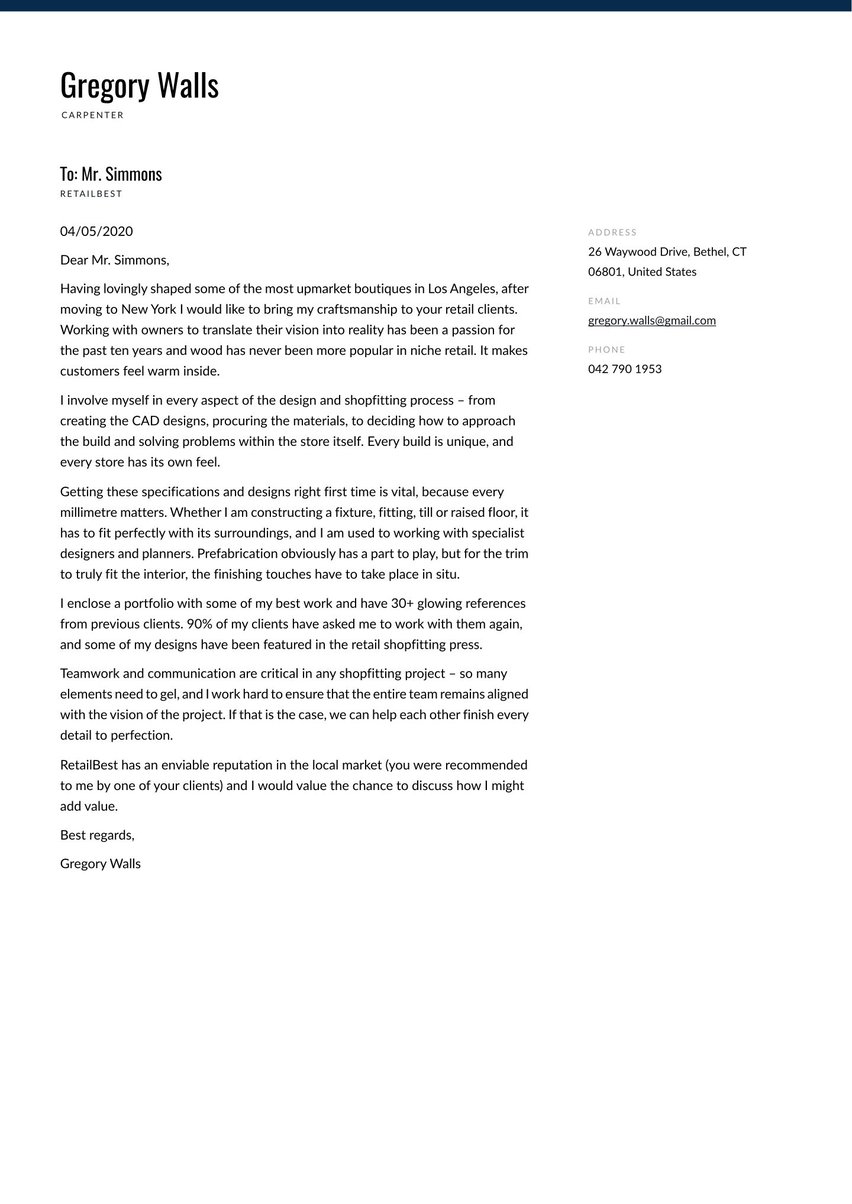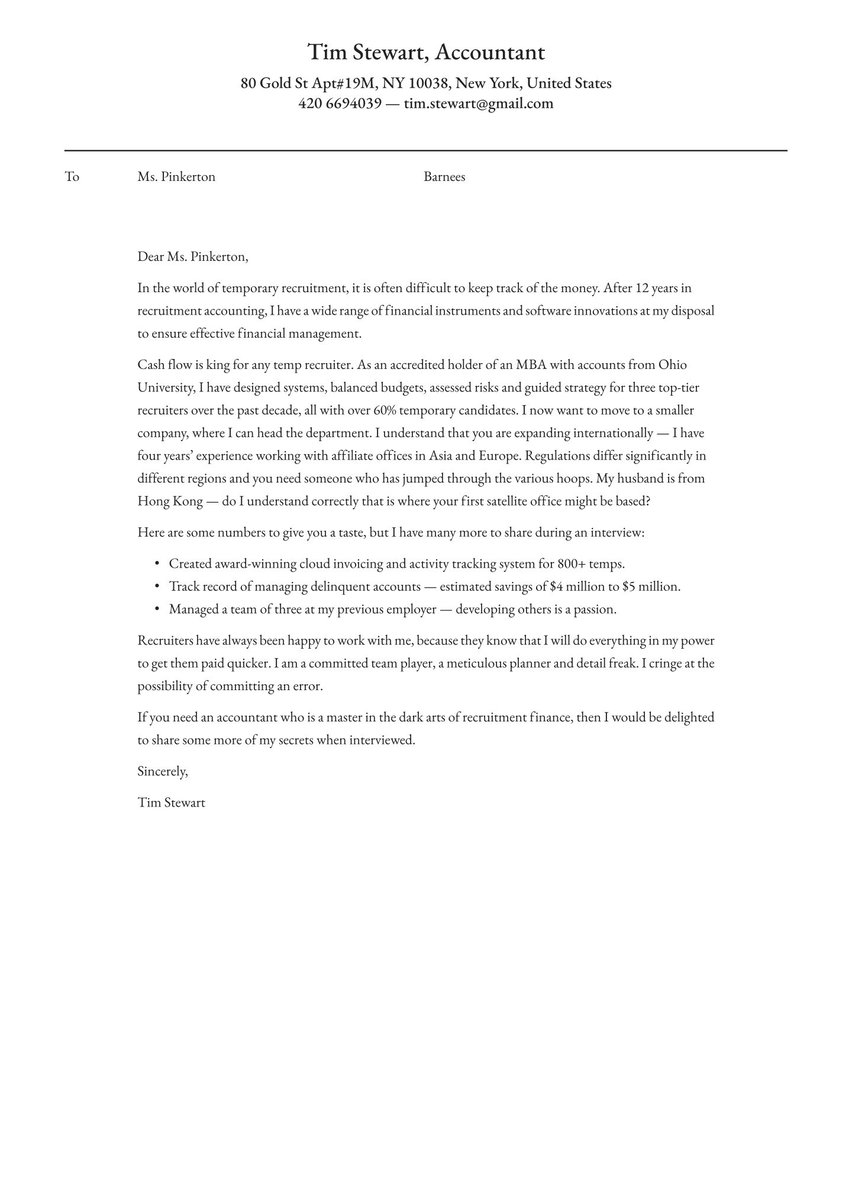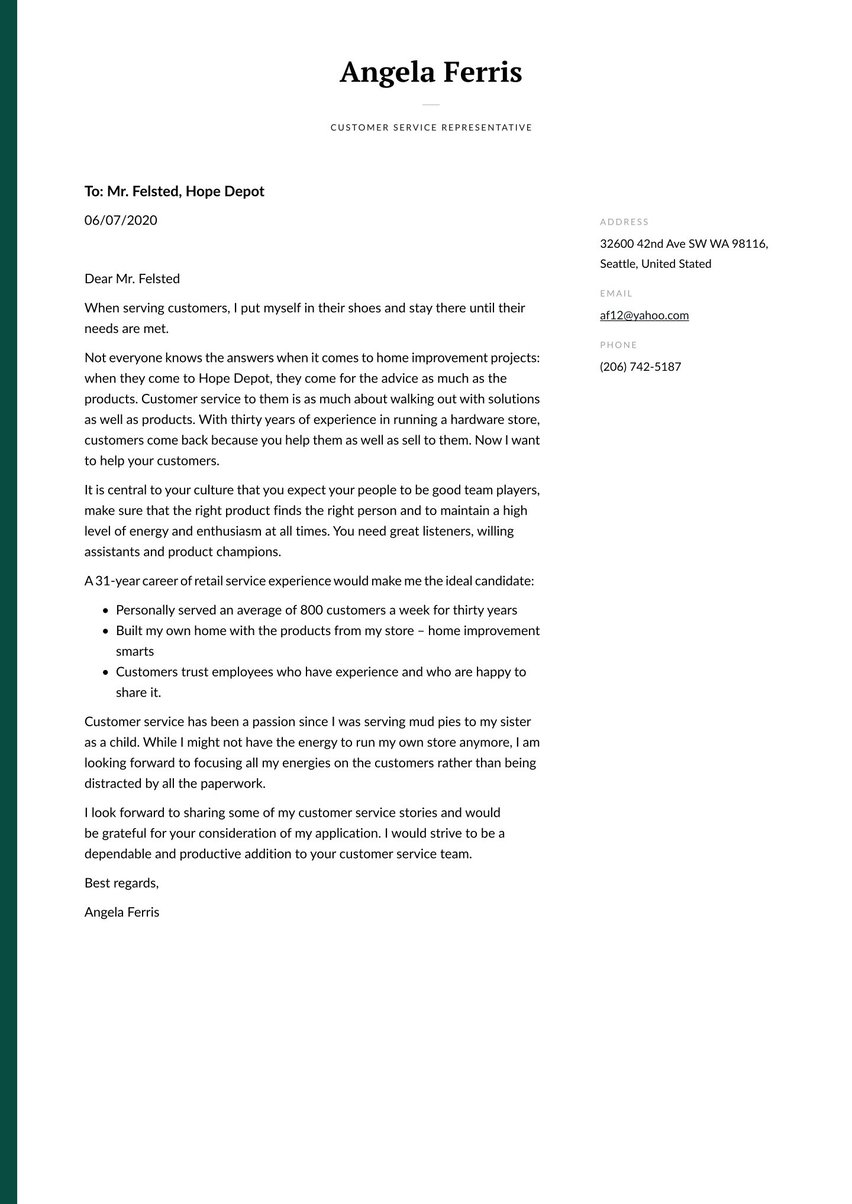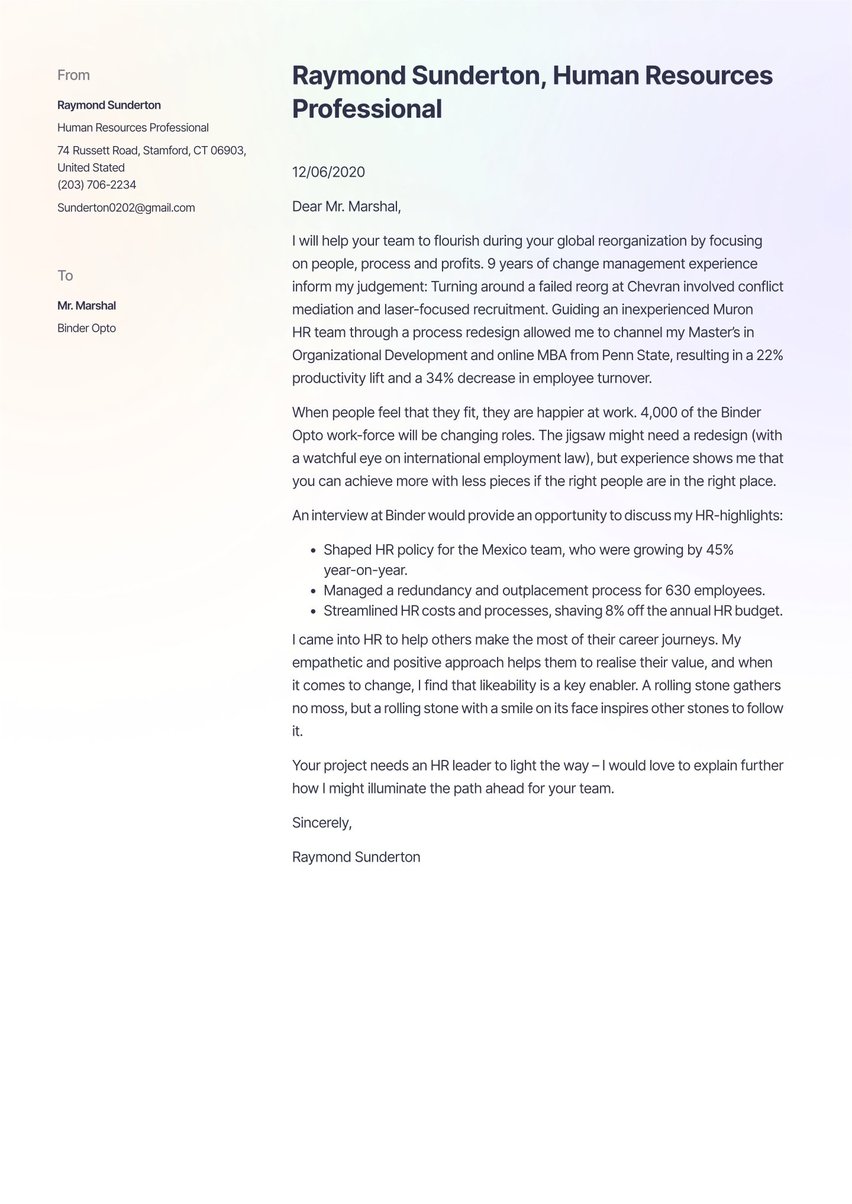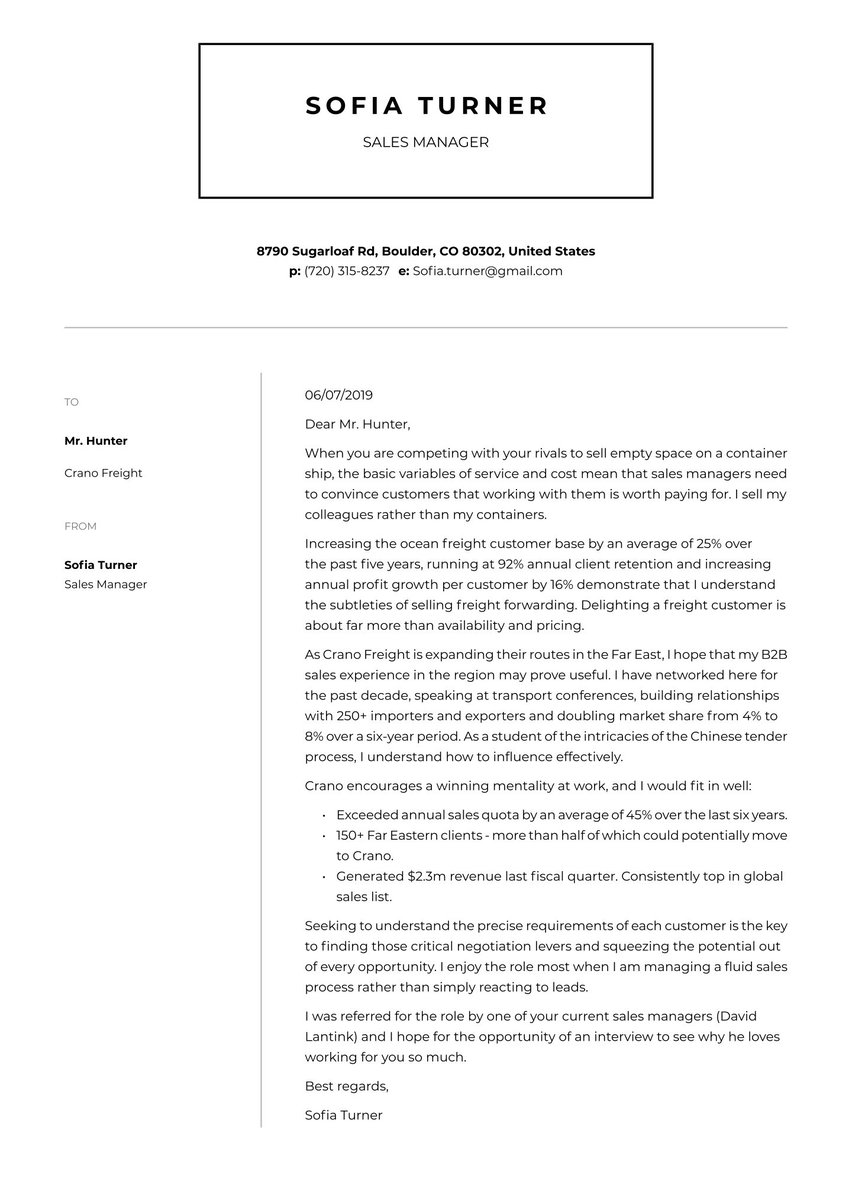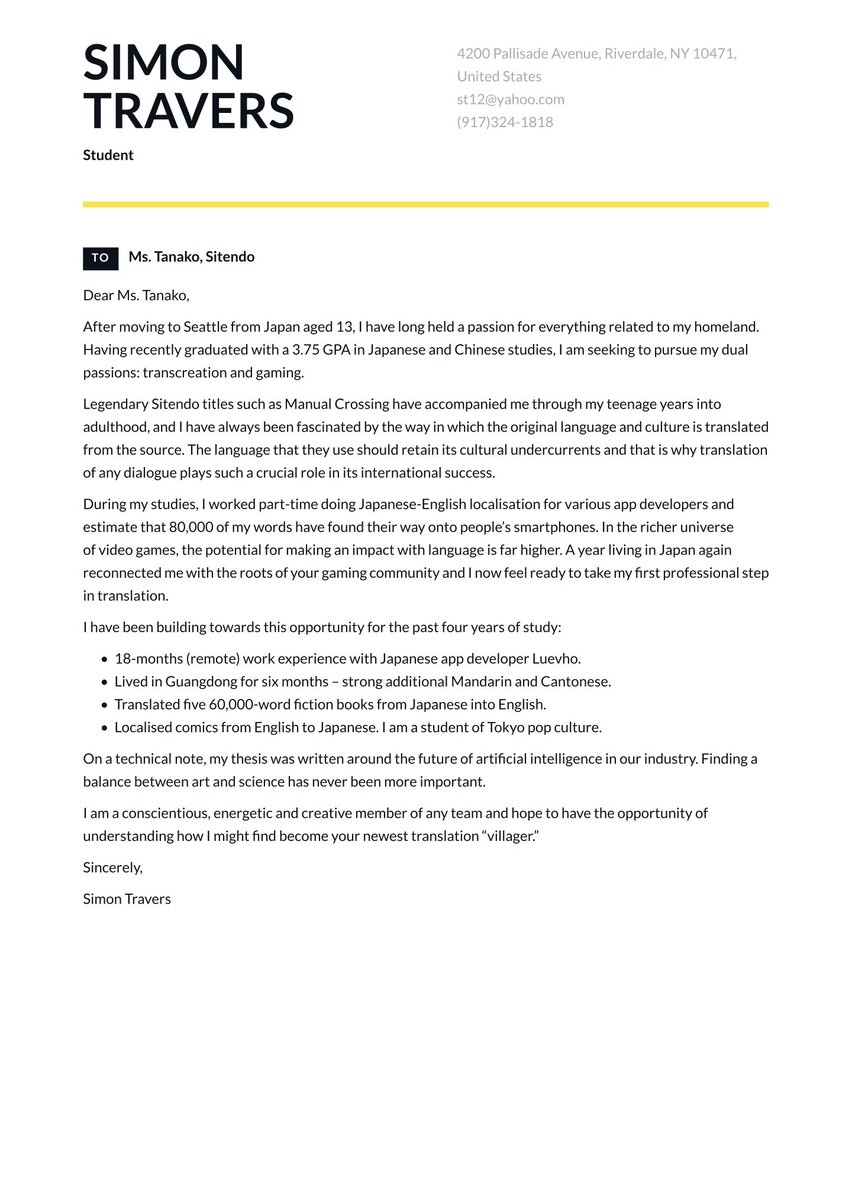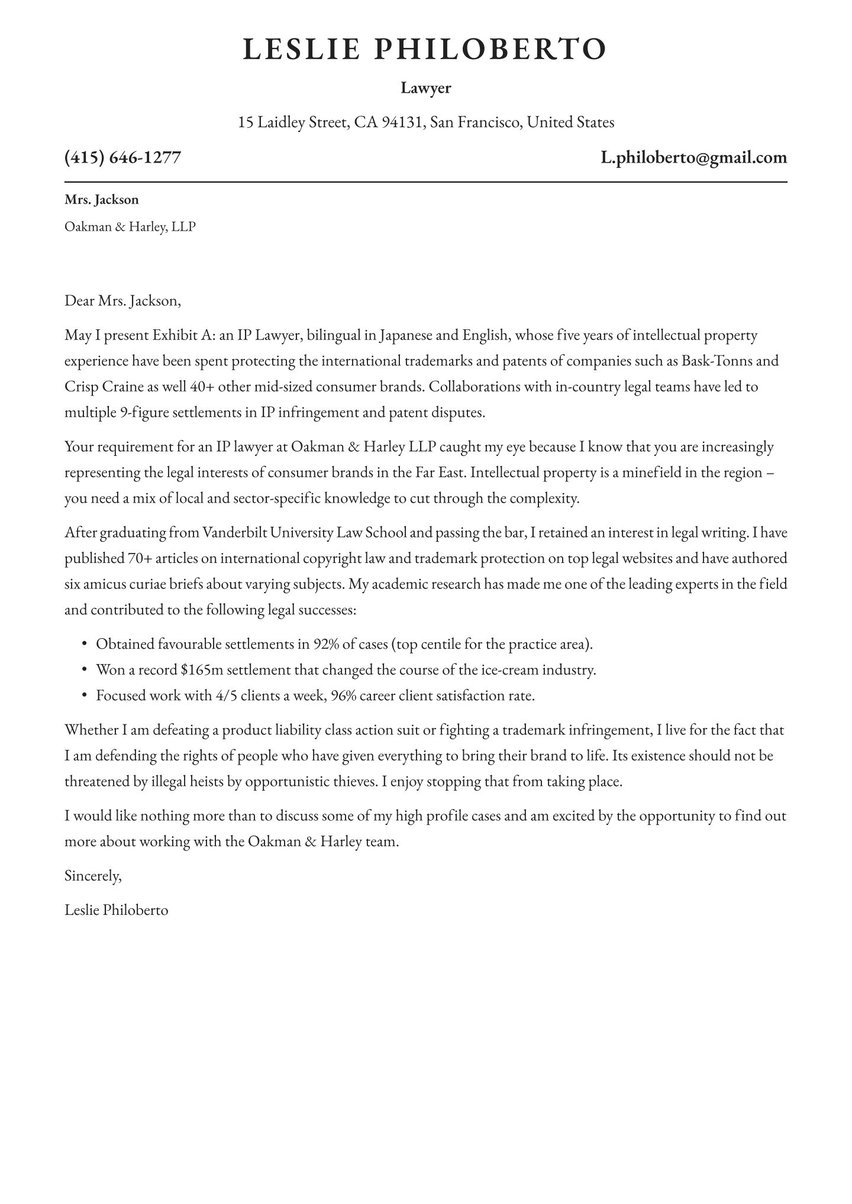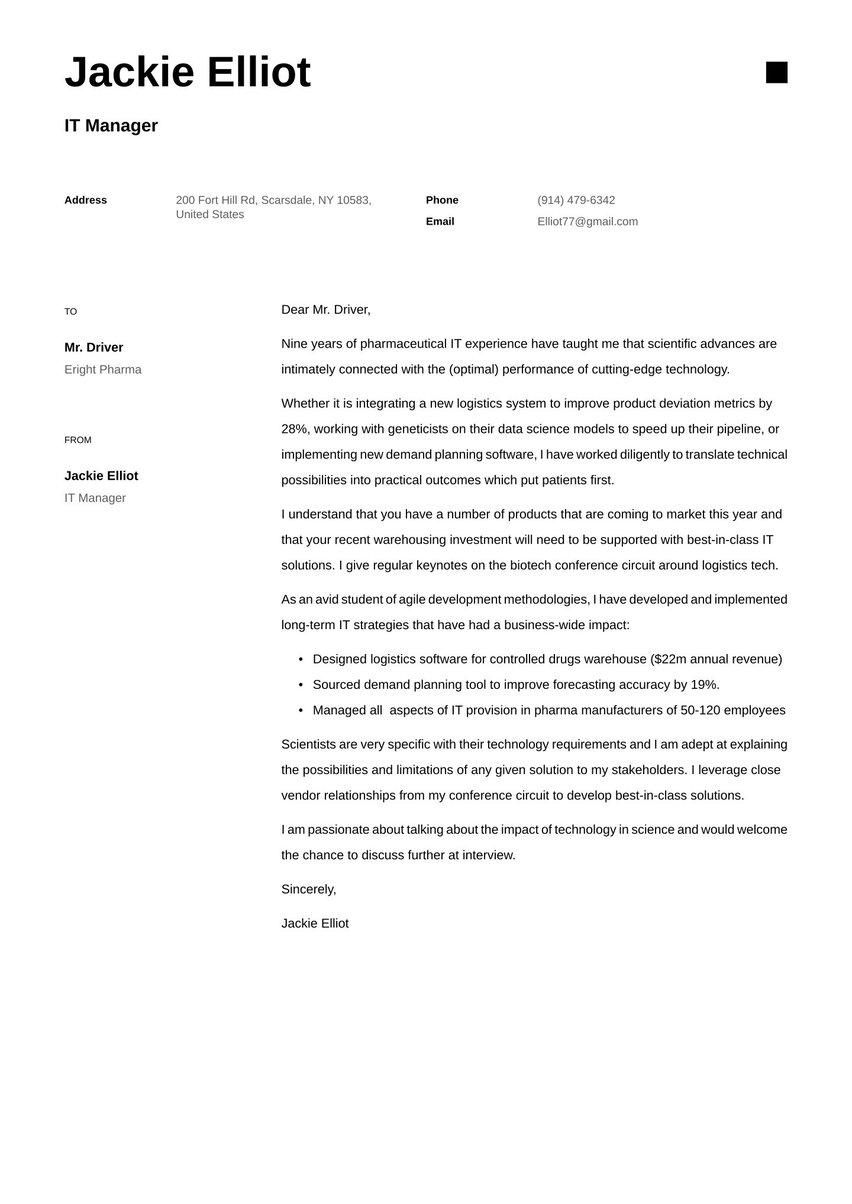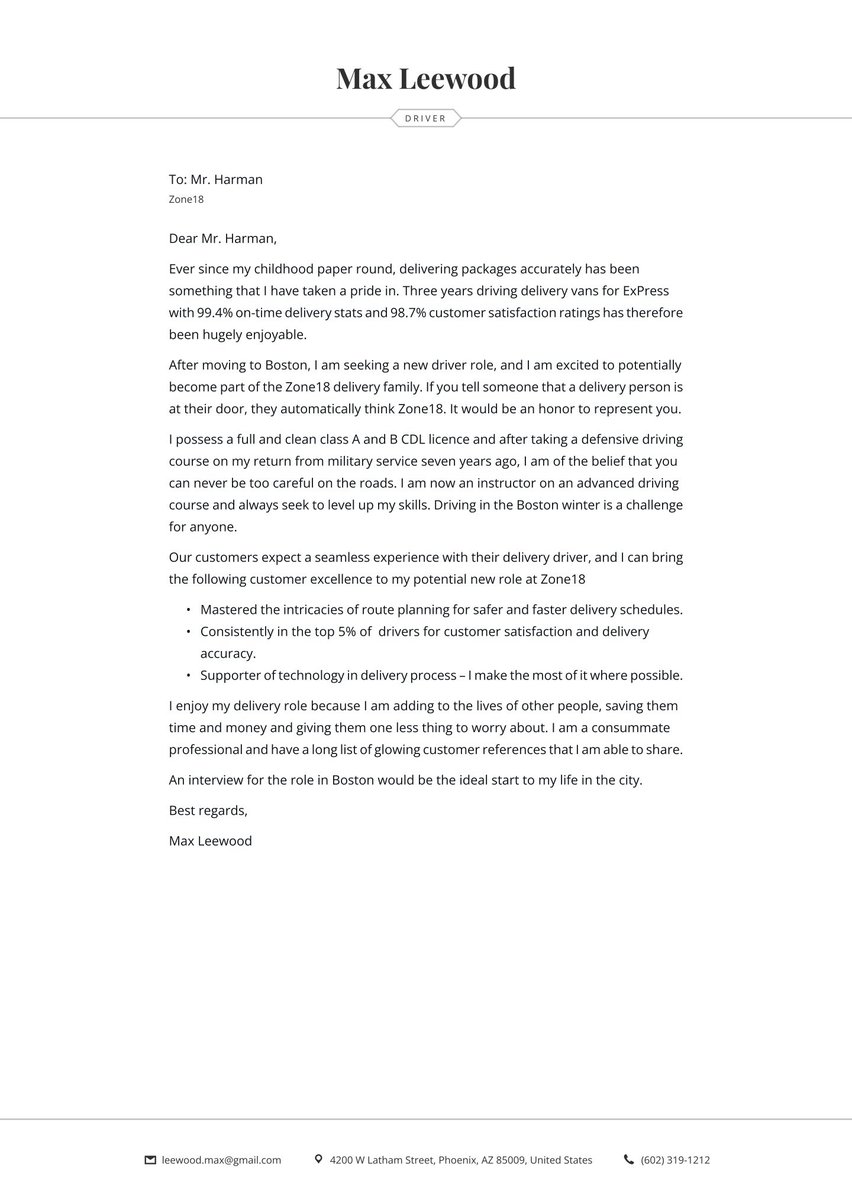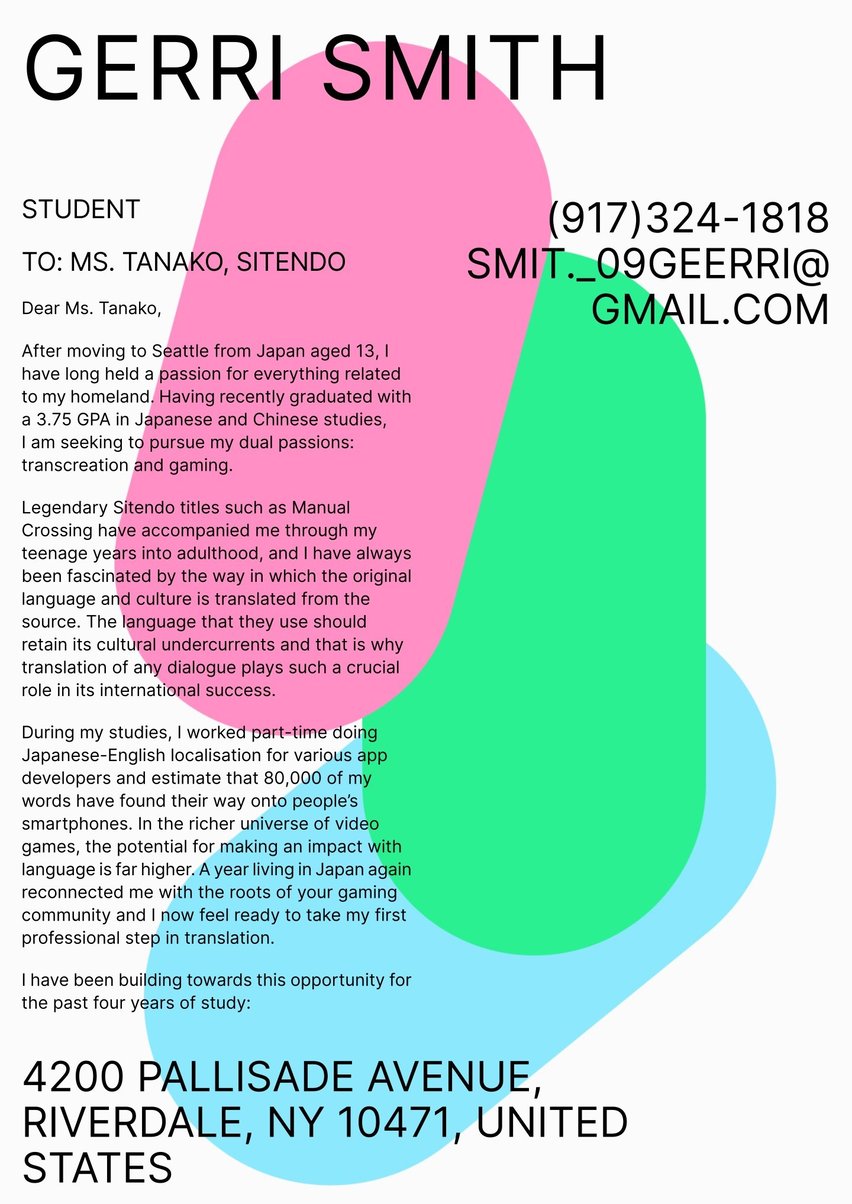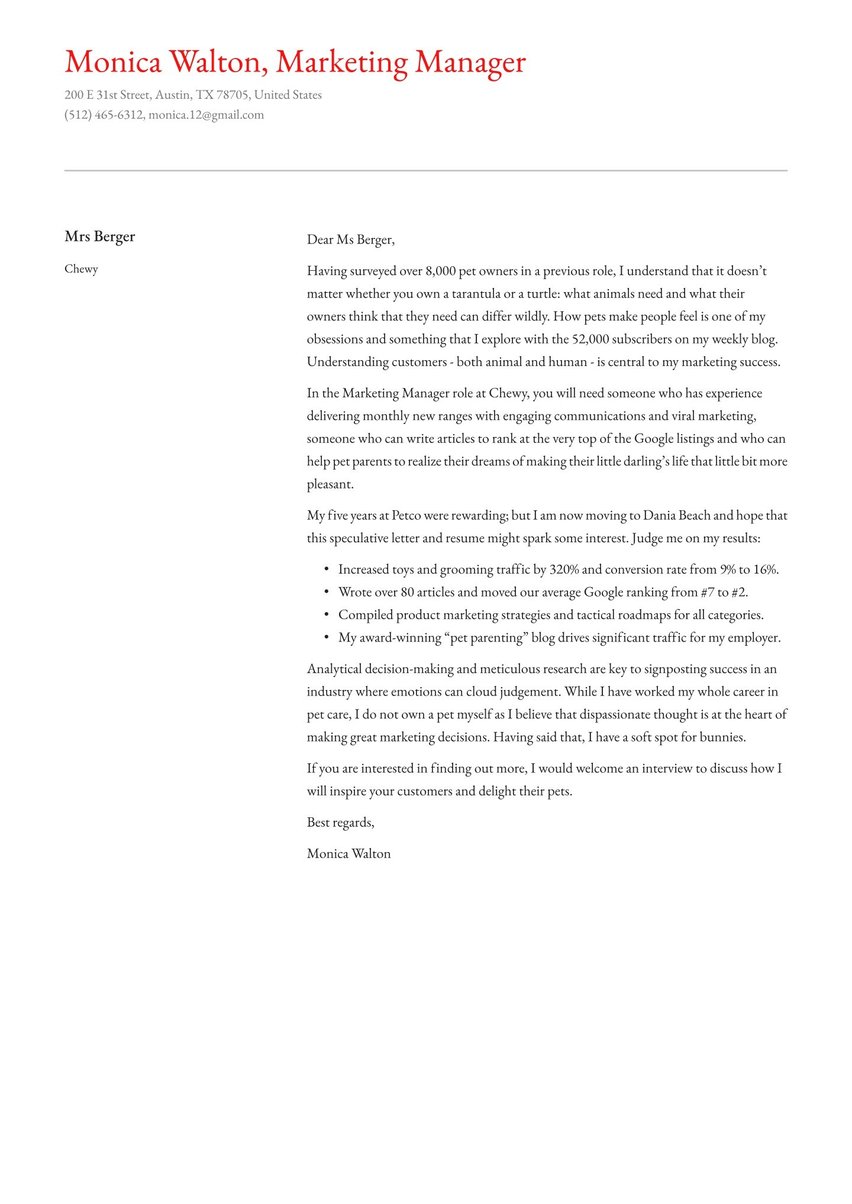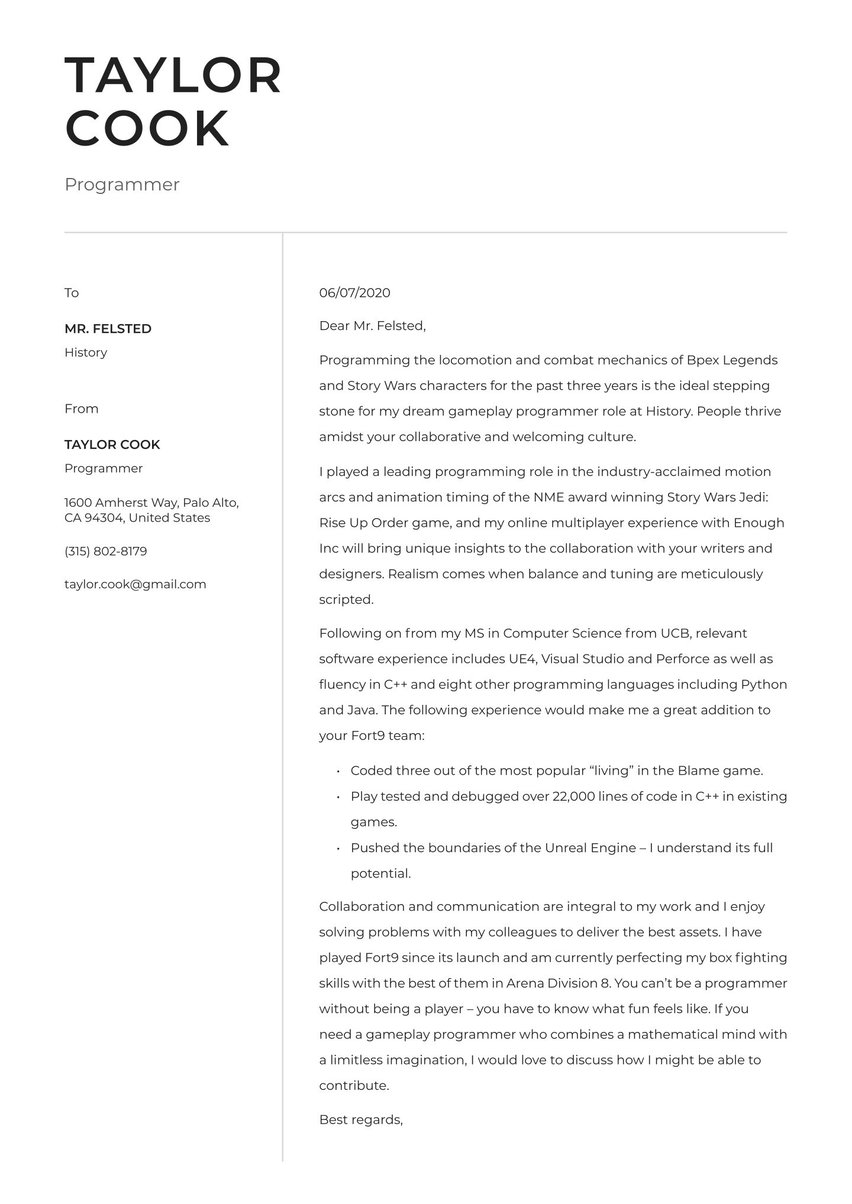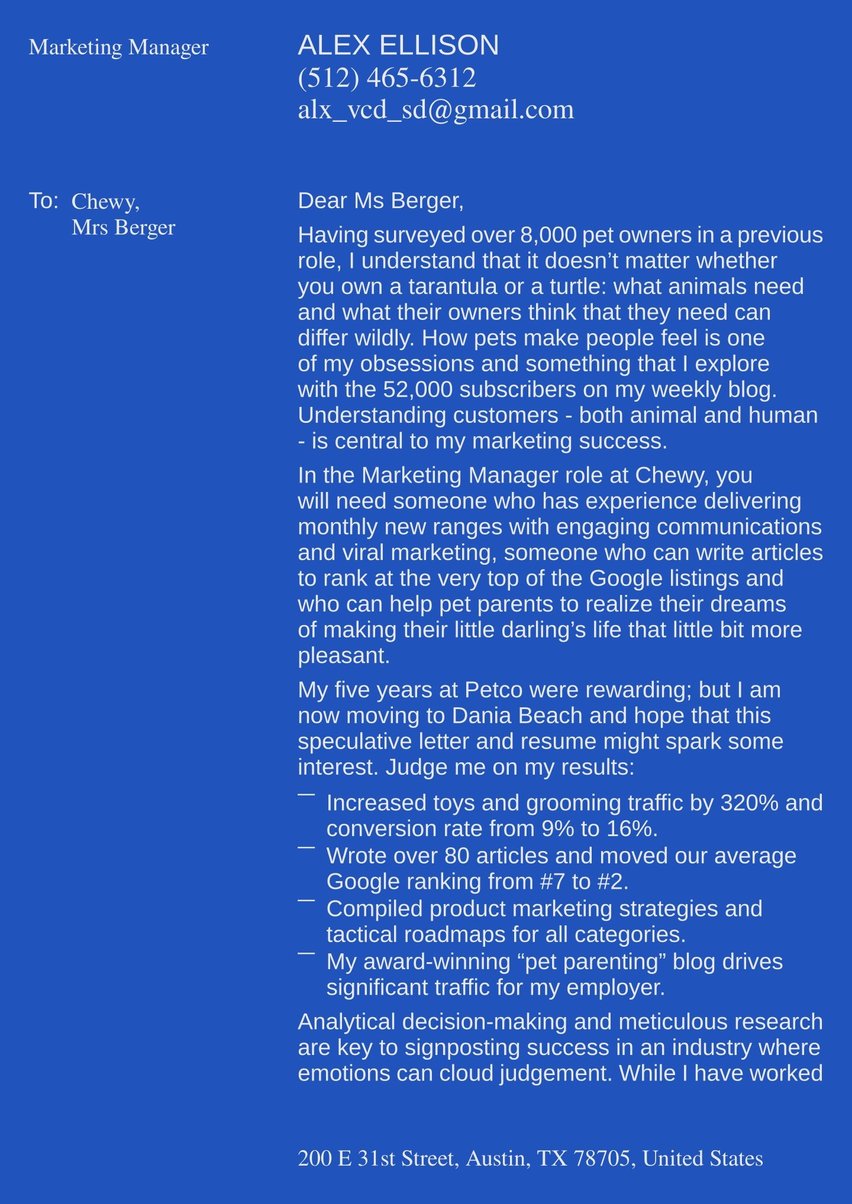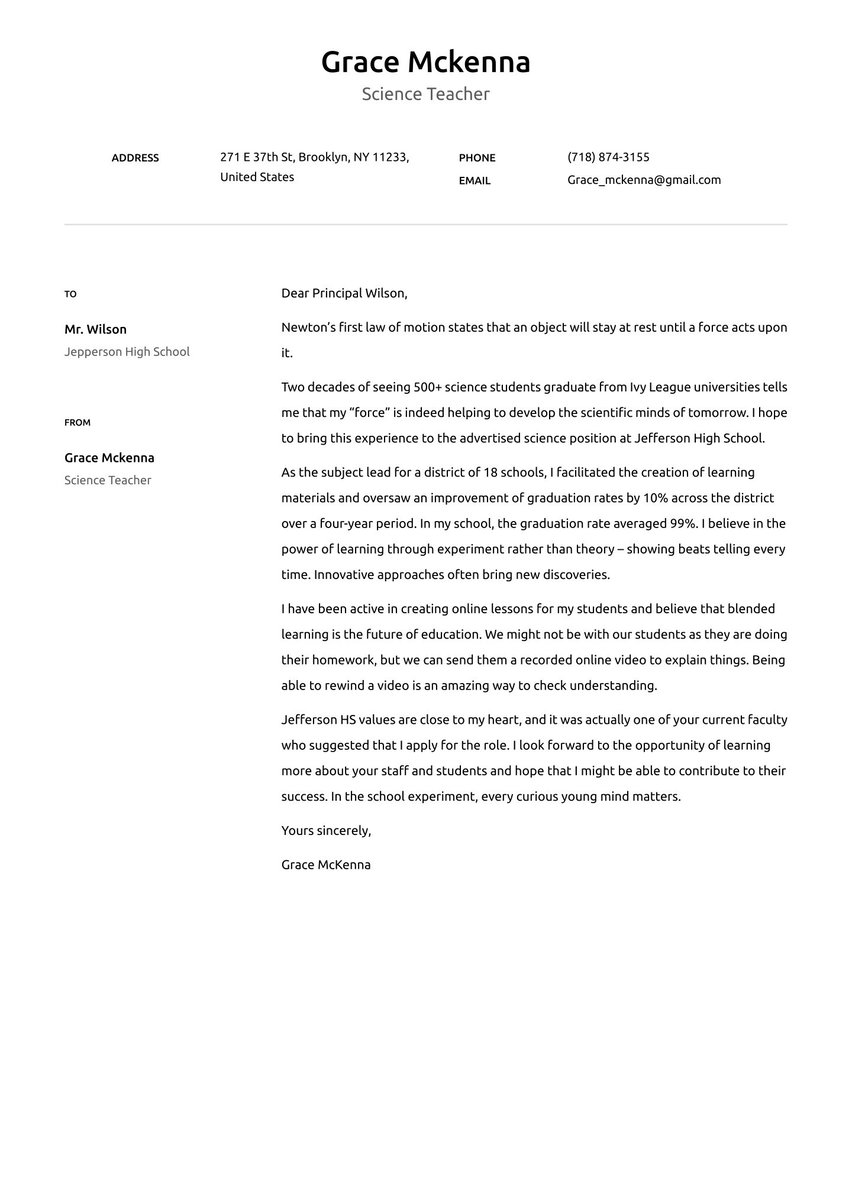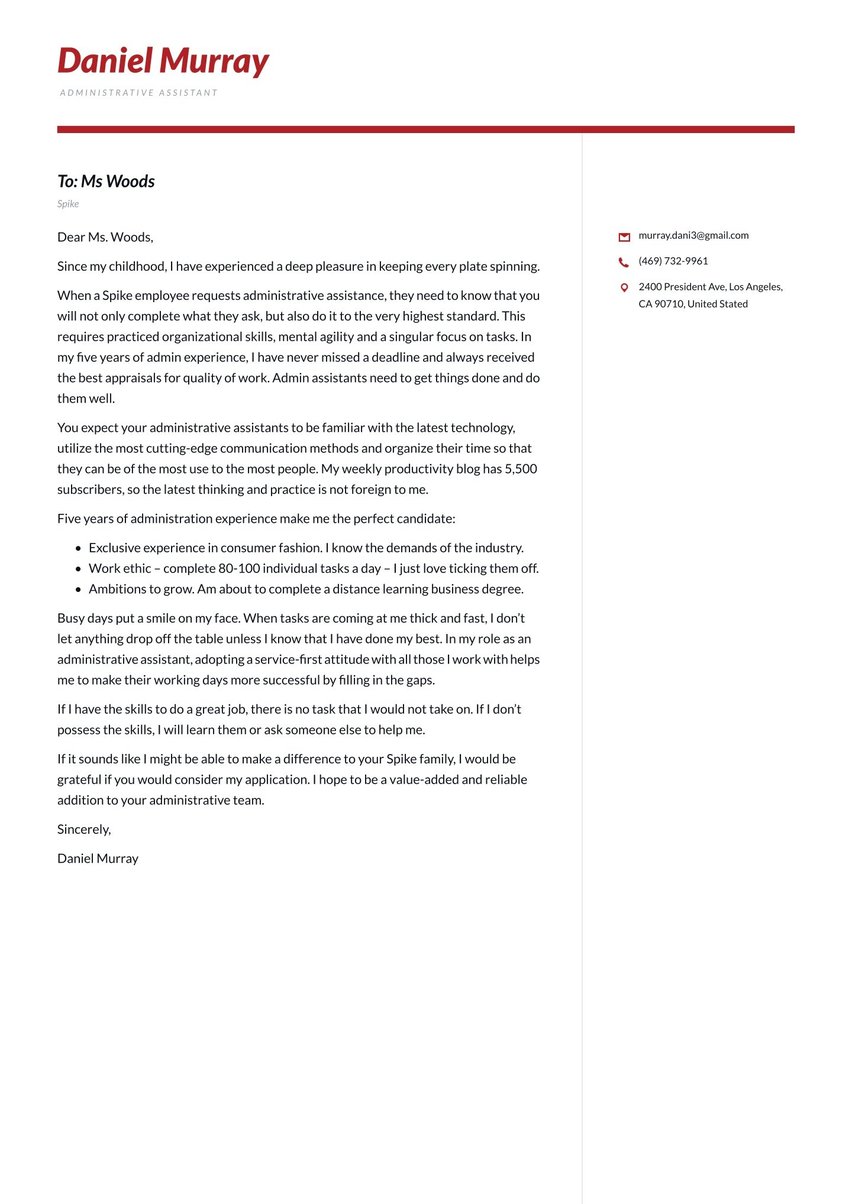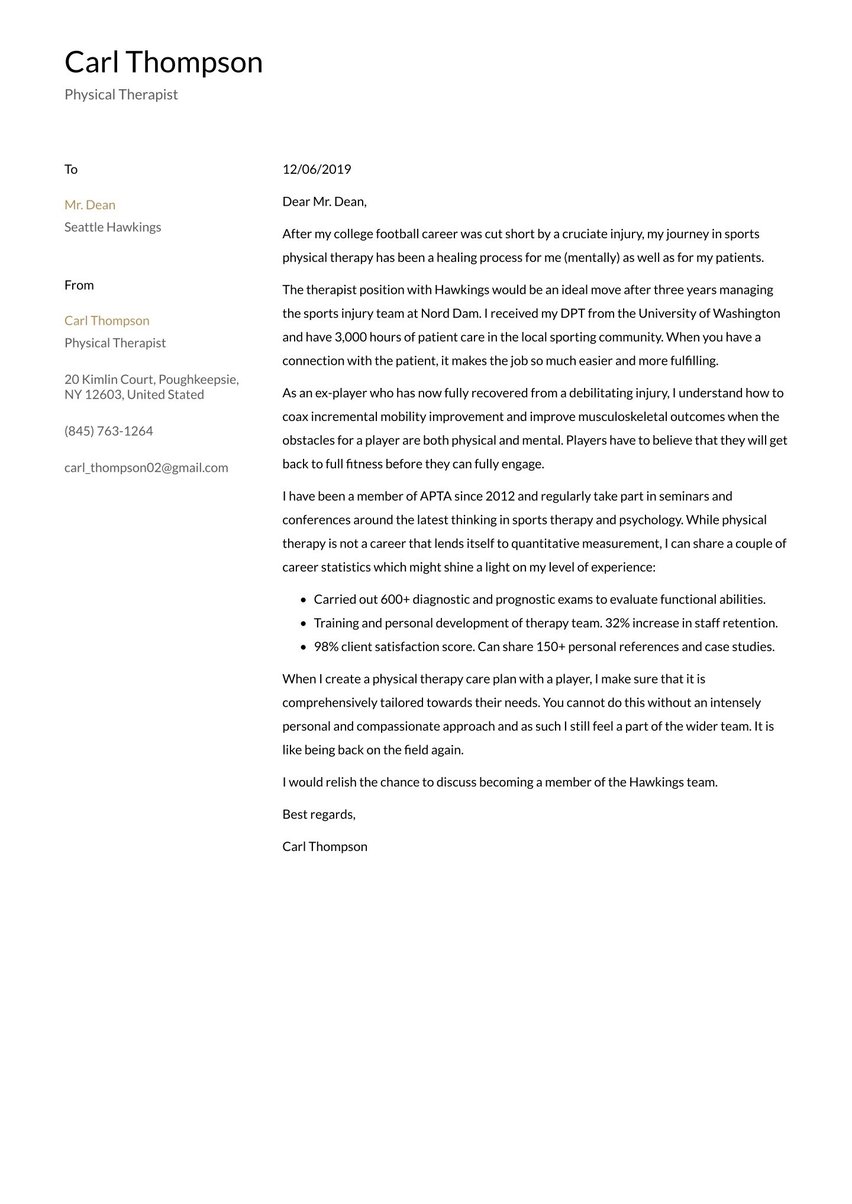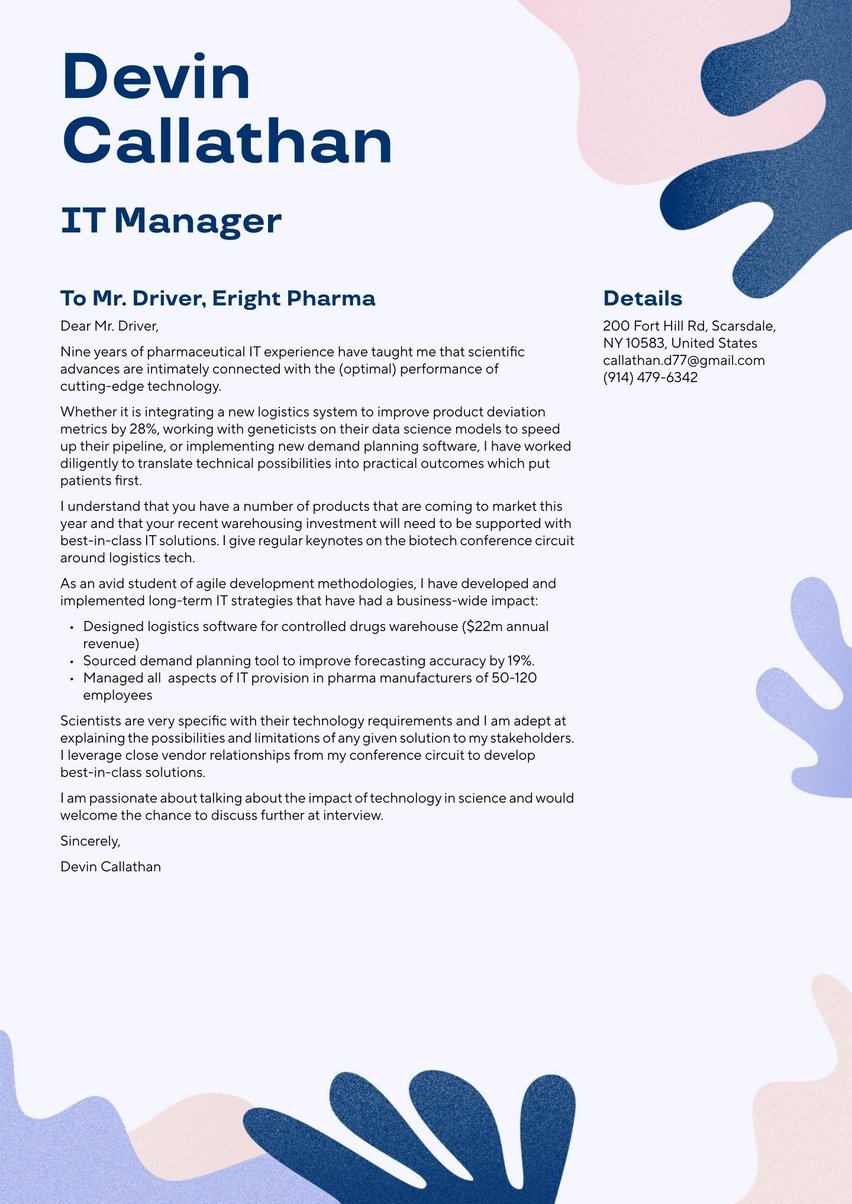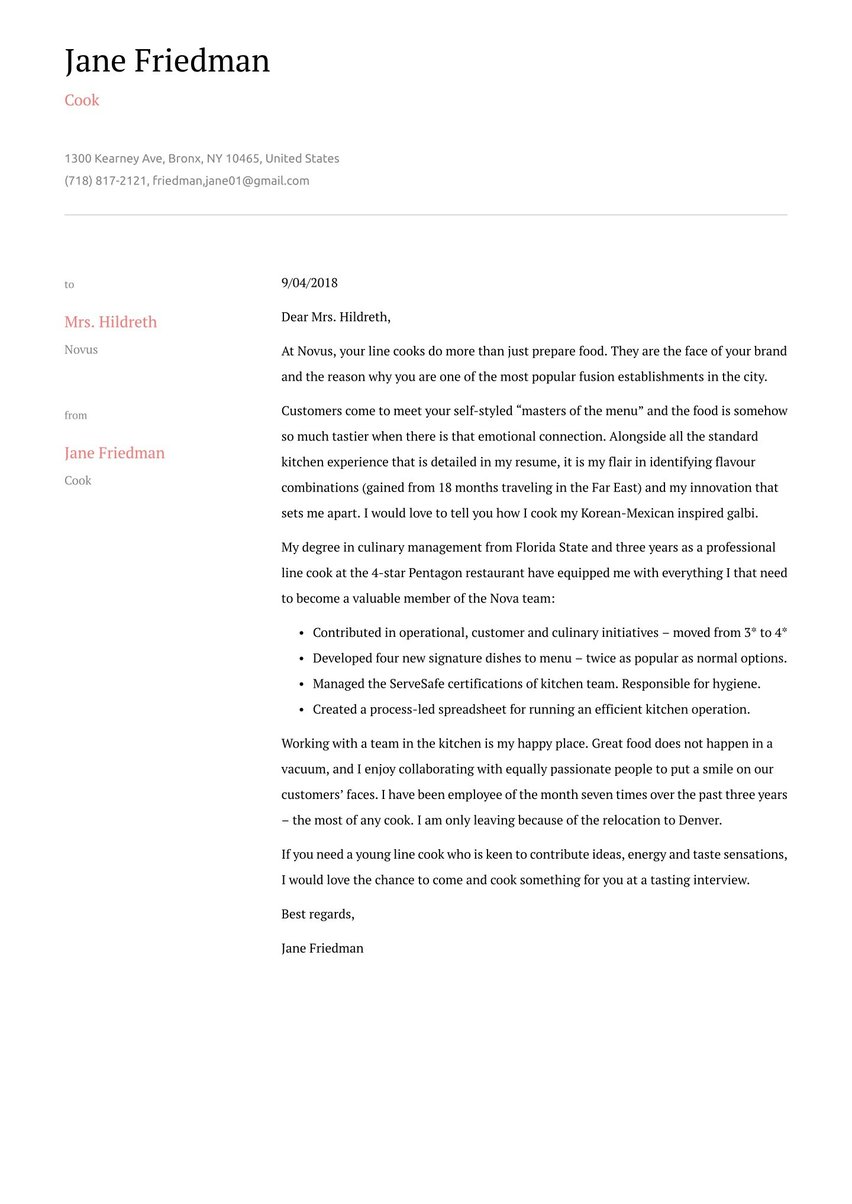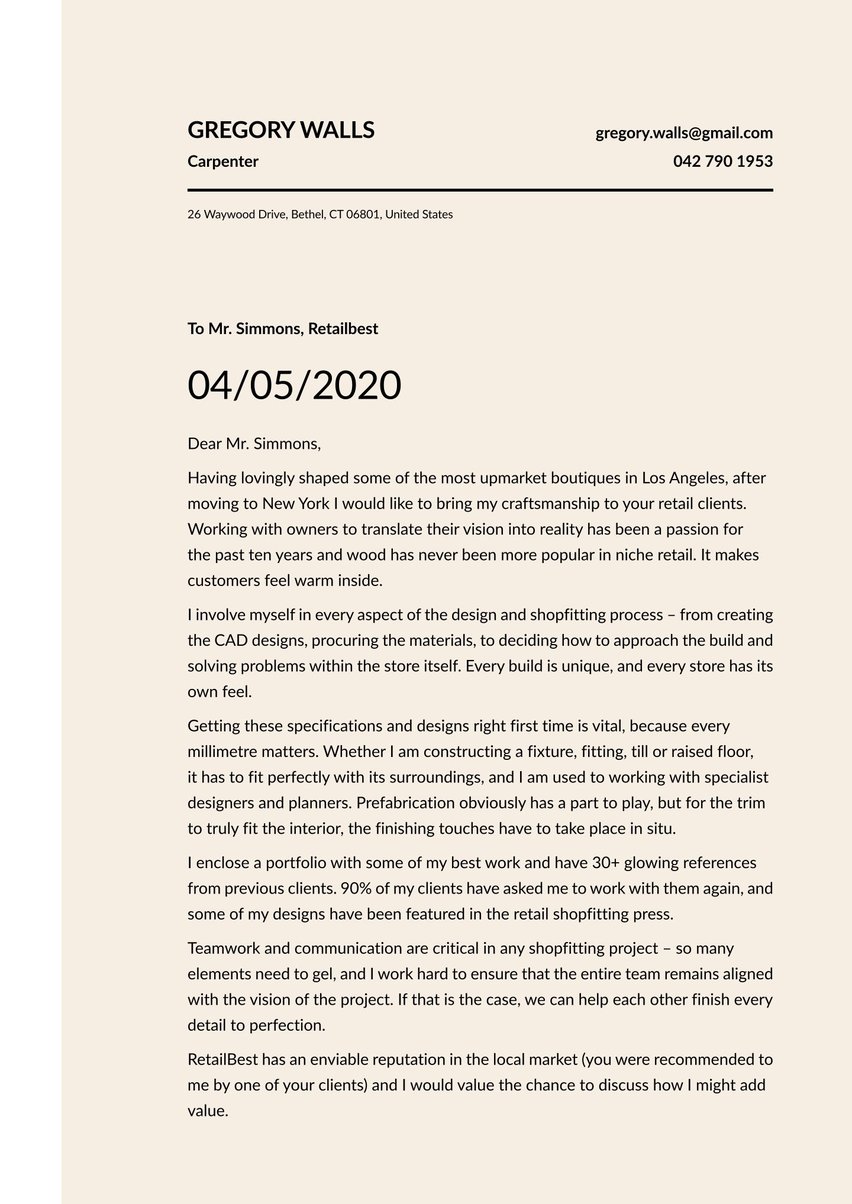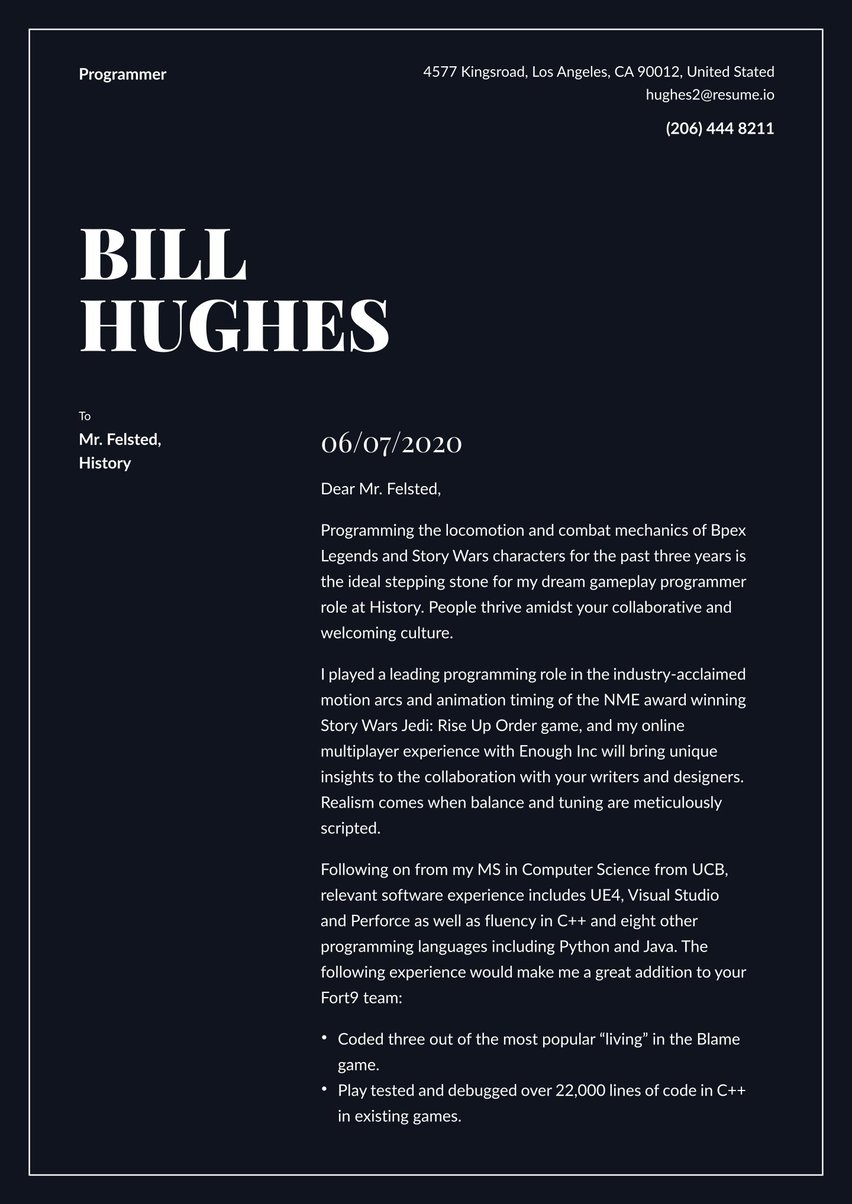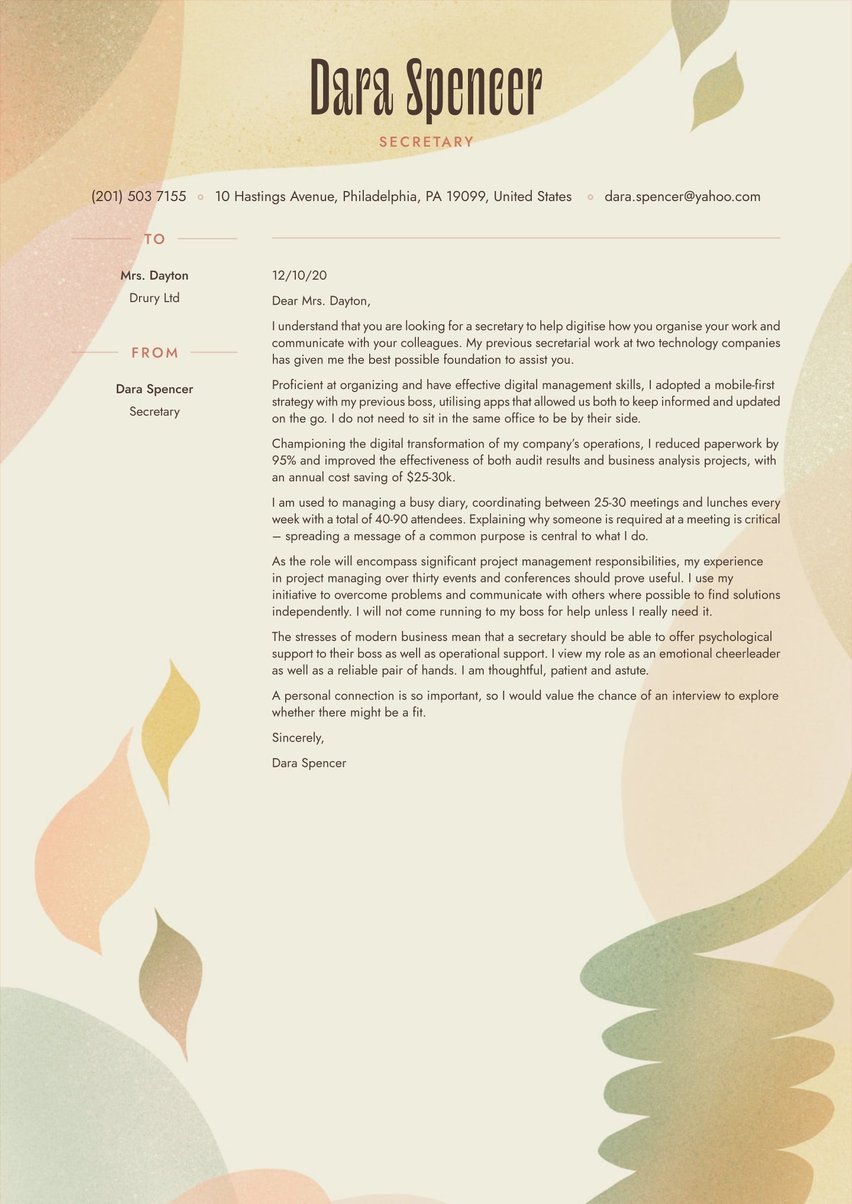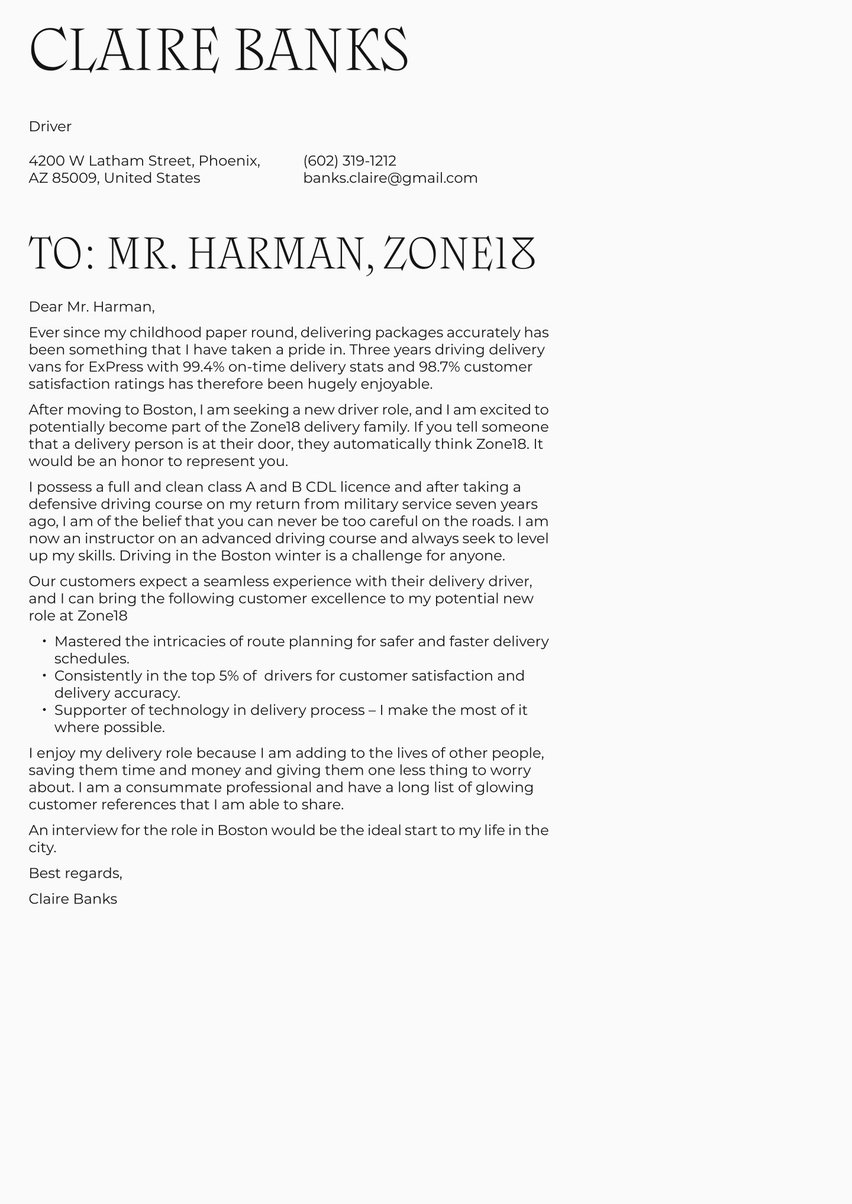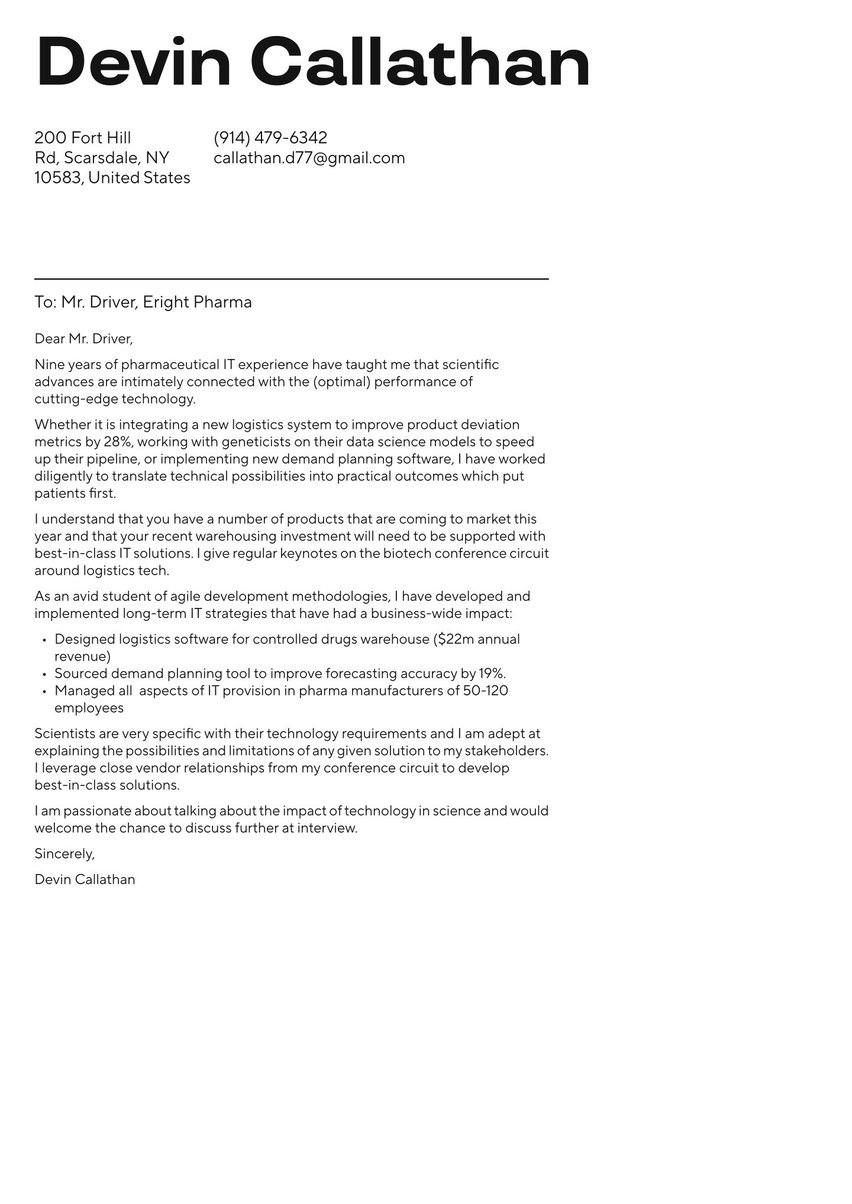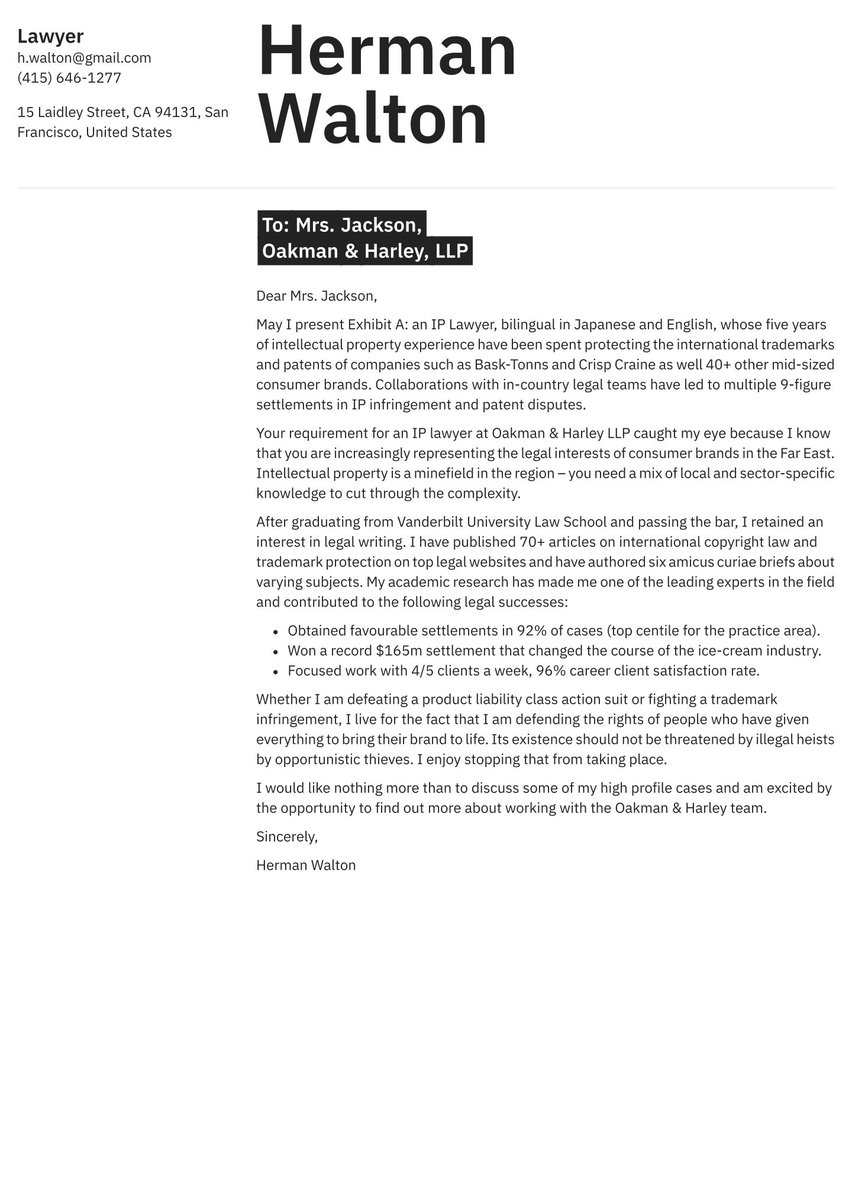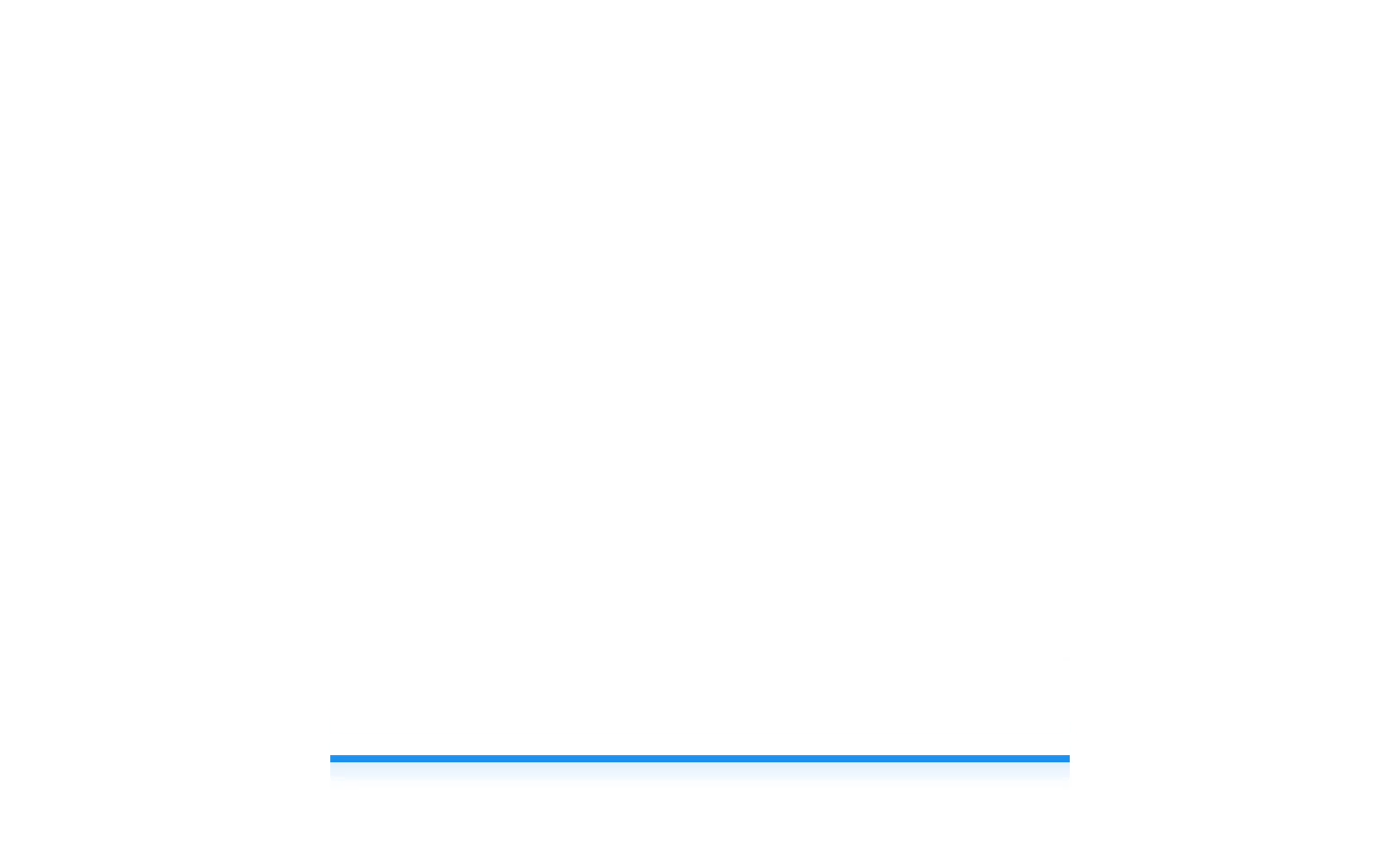The role as an early childhood teacher entails a great deal of responsibility. You are tasked with the nurture and development of the most precious resource on the planet – our children. Your cover letter offers the chance to show your dedication and passion.
The resumes of early childhood teachers will not vary a great deal from each other. Everyone is teaching the same curriculum, and while school circumstances and extracurricular activities may vary, it is how teachers impart knowledge and encourage their students that matters. This can only be conveyed in a free-flowing cover letter.
Writing a cover letter is very different from writing a resume, and it is worth reading examples from other professions for some ideas. Our cover letter examples and writing guides offer varying insights. It is important to be customer-centric (talk about your students), you should quantify the value that you bring (talk about their results) and you need to tailor your application to the role in question (research the school). Here are a few other topics this guide will cover:
- Selecting a cover letter format that will frame your application.
- Picking which stories to tell in the introduction, main part, and conclusion.
- Matching your cover letter to the requirements of the role.
- Mistakes to avoid in the early childhood teacher cover letter.
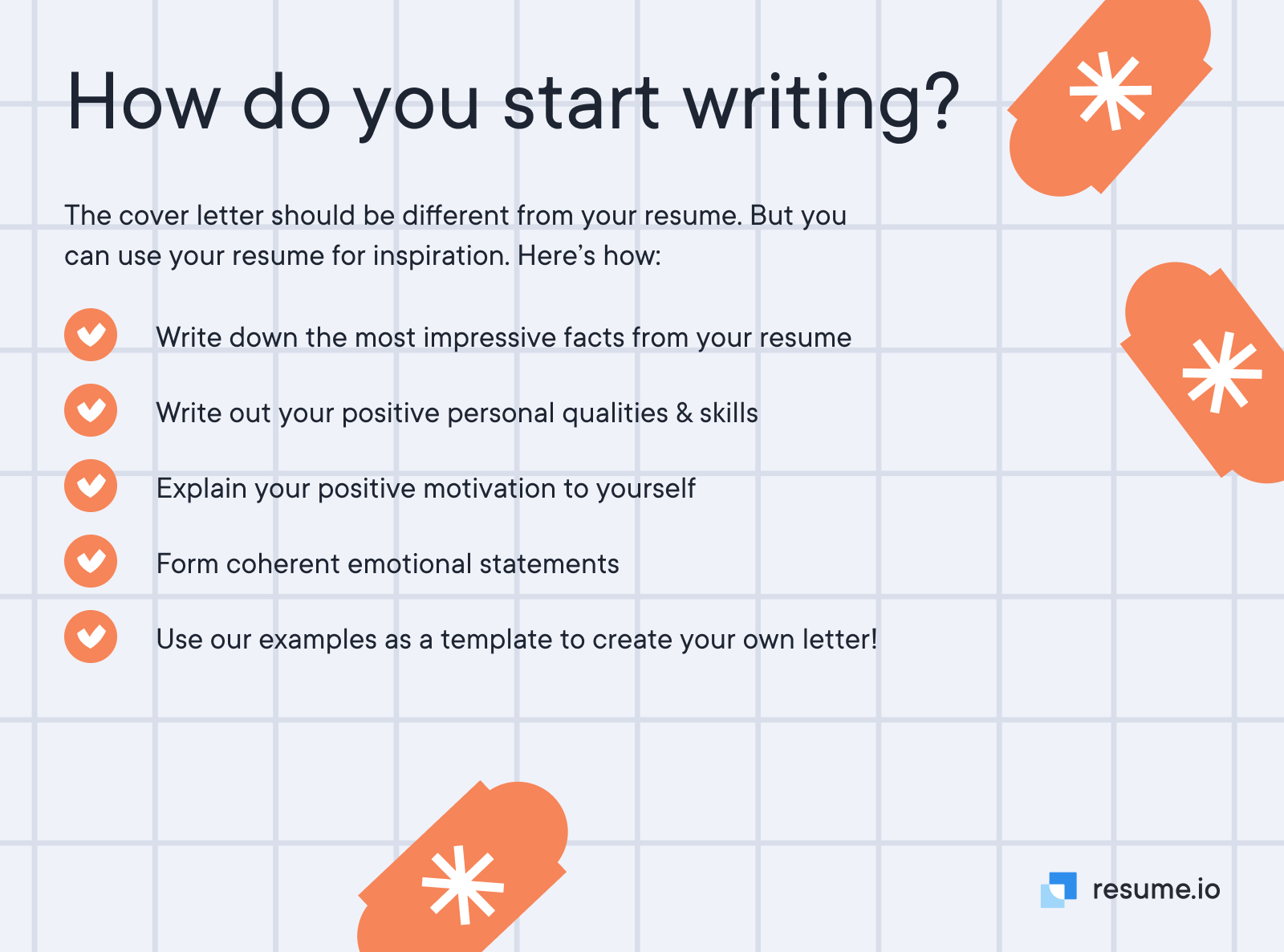
Best format for an early childhood teacher cover letter
An early childhood teacher’s role is so varied that it is hard to decide how to structure the cover letter. Which stories are going to be most important to the employer and how can you tell them when you only have 300-400 words to play with? How you structure the letter will give a flow to your story and allow you to start the stories you wish to continue at the interview.
You shouldn’t stray too far from the normal cover letter format:
- The cover letter header
- The greeting / salutation
- The cover letter intro
- The middle paragraphs (body of the letter)
- The ending paragraph of your cover letter (conclusion and call-to-action)
The early childhood teacher’s cover letter should have the children at its heart. Resist the temptation to simply repeat the job duties and tell a couple of stories to outline how you made a difference to your kids. Offer some context if possible – the background to your stories will highlight just how exceptional you are. When a school is hiring a teacher, they want to understand just how they manage to develop their students – flexibility, innovation and communication are key things to include.
Many teachers offer extra-curricular interests that may benefit the school, and the cover letter is a perfect place to outline them. What do you offer the student body that no other teacher can offer? Whether it is music, sport or running a debate team, most teachers strive to offer more than just academic development.
Our comprehensive cover letter guide offers a broad range of advice about the structure of a cover letter along with other practical considerations. Check out the adaptable example:
Dear Ms. Pickleworth,
The position as a preschool teacher at Clay Elementary would allow me to combine my teaching experience with my passion for youth sports. I know that you pride yourself in taking some of the best young sporting talent in the state – my previous employer was Lullworth Elementary, who have a similar reputation in Florida.
When education and sporting excellence are combined at a young age, engaged children can develop at an astounding pace. After my six years at Lullworth, 32 children are now on a path to national representation in various sports. In terms of their academic growth, the grade averages of my classes were 23 percent higher than the state average. I use sporting analogies where I can, but sometimes math is simply math.
My previous school had a particular focus on improving the educational outcomes of underprivileged students, while at the same time maximizing their sporting potential. I am experienced in helping students with non-compliant behavior and learning disabilities, blending these learning challenges into the overall classroom experience. My associate degree in early childhood development taught me much about the psychology of learning.
Many parents feel that such an emphasis on sport at a young age is not healthy for broader childhood development, but I have found that, as long as it is enjoyable, a focus on sport can bring a class together and help children develop positive communication and healthy behaviors.
I look forward to hopefully discussing further at a potential interview.
Sincerely,
Lillian Martin
Cover letter header
The header of an early childhood teacher cover letter should contain all the essentials without distracting from the core messages of their application. Include your full name, email, and mobile number. These details should be repeated from your resume – you never quite know when a hiring manager might choose to invite you to interview.
There is no requirement to include your full postal address in the cover letter header – there are potential data protection and discrimination issues. Nor is an “inside address” of the school required, although it is not hard to find, and it may add an extra element of professionalism and formality to the application.
Some professionals may choose to share their social media details like LinkedIn or a teaching Instagram account in the header. We recommend this only when your social media is highly professional and builds a positive image of you as a teacher.
Cover letter greeting
No one applying for a job as a school teacher should be confused about how to address the school principal. Normally a cover letter would start with “Dear Mr./Mrs./Ms. Last Name” but for a school application you would normally write “Dear Principal” then their surname. Some schools have different titles for their head teachers, so check beforehand.
If you are being interviewed by a more junior member of staff, then the normal forms of address apply. Never start a cover letter with “To Whom It May Concern” – that is cold and informal. It shouldn’t be hard to find out the name of your interviewer – it should be on the cover letter. Otherwise finding out the principal’s name is just a quick phone call.
Cover letter introduction
The introduction needs to be firmly focused on your fit with the role. Have you worked with these types of children before? Have you taught the same curriculum? How many years of early childhood teaching do you have? These questions may seem basic, but you need to tick off some of the simple boxes before you move on to the meat of the cover letter.
One next trick to make the hiring manager think that you are writing for them is to mention that you feel that you are a fit for their particular school. Naming them in the first paragraph has the effect of personalizing the letter that little bit more. So many cover letters are generic, so make yours stand out as much as you can.
This adaptable early childhood teacher cover letter sample intro highlights one approach:
Dear Ms. Pickleworth,
The position as a preschool teacher at Clay Elementary would allow me to combine my teaching experience with my passion for youth sports. I know that you pride yourself in taking some of the best young sporting talent in the state – my previous employer was Lullworth Elementary, who have a similar reputation in Florida.
Cover letter middle part (body)
The middle part of an early childhood teacher cover letter should cover the results that you helped your children achieve (feel free to share a non-identifying story or two) and the methods that you use to greatest effect in the classroom. Every teacher is different – in the early years’ classrooms methodology can vary, with personality central to effective pedagogy.
Consider the culture of the school that you are seeking to join and use examples from schools with similar backgrounds. There is nothing easier for a school principal to think than “well, they haven’t worked at a place like this.” Seek to reassure them that you know what you are getting yourself into.
Thirdly, quantify your results and add context wherever possible. Schools vary in terms of the ability of their pupils, so show that you made a cumulative difference to your kids, no matter what level they started at. Have a look at our body example:
When education and sporting excellence are combined at a young age, engaged children can develop at an astounding pace. After my six years at Lullworth, 32 children are now on a path to national representation in various sports. In terms of their academic growth, the grade averages of my classes were 23 percent higher than the state average. I use sporting analogies where I can, but sometimes math is simply math.
My previous school had a particular focus on improving the educational outcomes of underprivileged students, while at the same time maximizing their sporting potential. I am experienced in helping students with non-compliant behavior and learning disabilities, blending these learning challenges into the overall classroom experience. My associate degree in early childhood development taught me much about the psychology of learning.
How to close an early childhood teacher cover letter (conclusion)
Finish with one last message about how you make your difference to those young lives. Maybe offer to come for a trial lesson or to learn more about the school? In any case, the last paragraph should end with a call-to-action. You are interested in the role, so don’t be scared to say that you are looking forward to finding out more about it during an interview.
Here is a sample early childhood teacher cover letter sample conclusion:
Many parents feel that such an emphasis on sport at a young age is not healthy for broader childhood development, but I have found that, as long as it is enjoyable, a focus on sport can bring a class together and help children develop positive communication and healthy behaviors.
I look forward to hopefully discussing further at a potential interview.
Sincerely,
Lillian Martin
Basic mistakes in an early childhood teacher cover letter (and how to avoid them)
Early childhood teachers might think that the children don’t notice their mistakes, but if too many slip into their lessons, it is all too easy for education to incrementally suffer. No school leader is going to think well of someone who makes basic mistakes on their cover letter.
- Spelling and grammar mistakes: Check your cover letter for basic errors with a grammar checker such as Grammarly. You would check any materials that you prepare for the class, so this is no different.
- Don’t break confidentiality: While telling stories is important in a teacher’s cover letter, you should not mention any children for identity protection purposes. This would be a real red flag for anyone seeking to employ you.
- Too chatty: Early childhood teachers are expected to retain a degree of formality, so resist the temptation to be too conversational in the cover letter.
- Poor formatting: A sloppy layout and design sends the message that you’re not a very organized teacher. Luckily, a professionally-designed cover letter template can help.
Key takeaways
- Tell stories about how you made your difference to your class.
- Show how you assisted both academic ends of the classroom.
- Allow your personality to come through – it makes a difference with young kids.
- Talk about the results of your work – how did you make a difference to their grades?
- Check out our adaptable cover letter sample to get started creating a great page design.
Here are some other educational cover letter examples:


